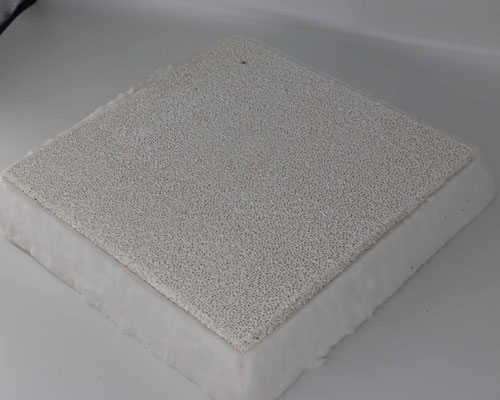The molten metal filtration requires foam ceramic filters can ensure that all impurities are removed from the metal melt.
Molten metal, especially molten aluminum, in fact often contains entrained solids that are harmful to the final cast metal product. These entrained solids appear in the final cast product as inclusions after the molten metal has solidified, and lead to poor ductility or poor finish and anodizing properties of the final product.
Inclusions may come from multiple sources. For example, inclusions may come from surface oxide films, which are destroyed and entrained in the resulting molten metal. In addition, inclusions may originate from insoluble impurities, such as carbides, borides, or corroded furnace refractories.
The molten metal filtration with ceramic filters can ensure the purification of metal. Porosity is the percentage of pore space in the filter. These porous components play a very important role in the entire process, so they must have standard properties.
The amount of raw materials used in the purification process is very high, because performing the process in small amounts is not a cost-effective solution. Therefore, a large amount of metal solution is poured on these filters, so they must have high compressive strength to operate without damage.
Adtech’s foundry ceramic filter is a low-cost material that can be easily used once. Alumina ceramic foam filter is particularly suitable for filtering molten metal, especially molten aluminum. The high temperature resistance of Adtech filters is particularly useful in molten metal filtration. In addition, the composition of Adtech’s ceramic filters is non-polluting to metals.
The horizontal cross-section of the ceramic filter can be any desired shape, and is usually square. The gasket of ceramic foam filter can fix and seal the filter in the proper position of the metal filter equipment, so as to prevent the molten metal from surrounding the filter.

